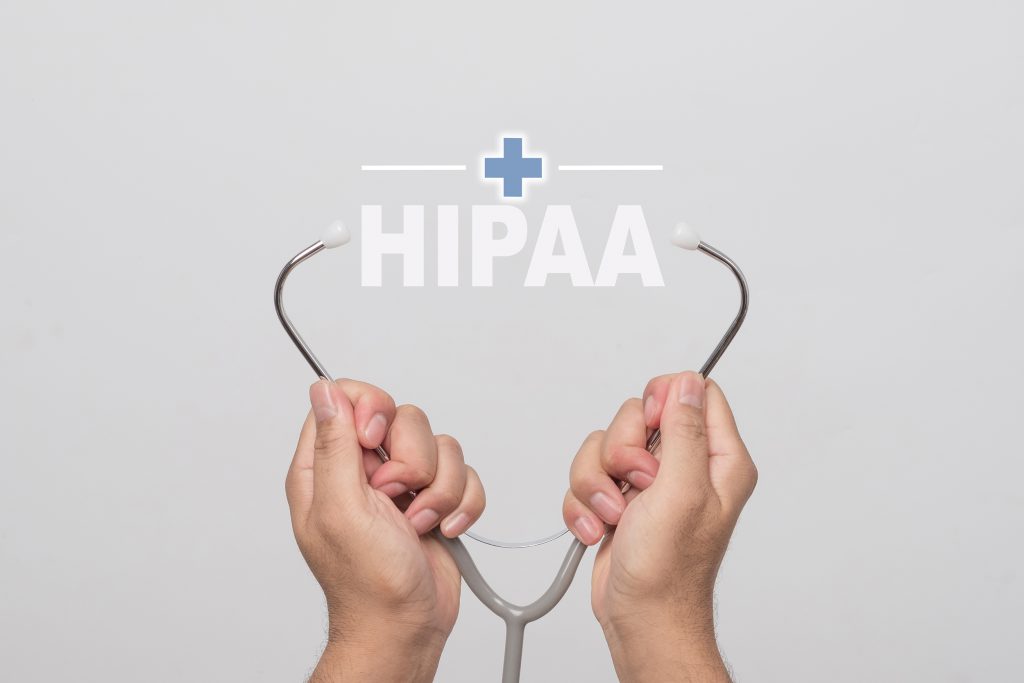What to Look For in a HIPAA Payment Processing System
What to Look For in a HIPAA Payment Processing System

As online payments become the norm for businesses in every field, healthcare practices are moving toward online bill pay, too. It’s the right move to make in an increasingly digital world. But to avoid big fines as you make your transition, HIPAA-compliant payment processing must be your priority.
So what is HIPAA compliance? And how does it actually affect online payment processing in the medical field? We’ll provide the answers, so you can make an informed decision as you choose your payment system.
What Is HIPAA Compliance?
The Health Insurance Portability and Accountability Act of 1996 — better known as HIPAA — is a federal law that requires healthcare providers to keep patients’ health information safe. Business associates, including those that are involved in claims processing and billing, are also bound by this law.
Under HIPAA, protected health information (PHI) includes any details that make it possible to identify a patient. Some examples of PHI are:
- Names
- Addresses
- Social Security numbers
- Health insurance numbers
- Medical records and test results
- Photographs and medical imaging
For the most part, providers can only use and disclose PHI — and securely so — without patient permission when it’s necessary for their treatment, payment, and healthcare operations. Few other exceptions exist.
HIPAA now also includes a Security Rule that requires providers and business associates to secure electronic PHI (e-PHI), as well.The cost of not following these HIPAA standards? Up to $50,000 per violation, up to $1.5 million per calendar year. It’s costly — and worth taking the time to understand how to avoid.
How HIPAA Affects Online Payment Processing
So how does HIPAA affect your online payment processing? While you may not be sending any medical information through payment platforms, you will be handling identifiable information. Whether you’re processing credit cards, e-checks, or something similar, you are responsible for keeping your patients’ names, payment information, contact details, and more safe.
However, keep in mind that payment processing platforms are not considered business associates under HIPAA. This means they’re not required to be HIPAA-compliant. Popular services like PayPal and Zelle do not follow HIPAA guidelines.
As a healthcare provider, it’s your responsibility to keep PHI secure as you start offering convenient online payments. For you, maintaining HIPAA-compliant payment processing could mean:
- Disabling text-based receipts
- Storing financial details separately from medical information
- Ensuring that all financial data is encrypted when stored online
To make it easier to follow HIPAA guidelines, many providers opt to use HIPAA-compliant payment processing systems like PayGround that are created for healthcare. These platforms make it easier to avoid fines by providing a secure way for practices to handle patient information.
4 Features That Great HIPAA Payment Processing Systems May Offer
Choosing the right HIPAA payment processing system is crucial for healthcare professionals. Since these online payment platforms generally aren’t required to follow HIPAA, it’s best to choose one that can actually offer the level of security you need.
In the medical field, you can’t just accept patient payments through Venmo and call it a day. Here are some features that great HIPAA payment processing systems may offer to reduce the headache of compliance:
1. HIPAA Compliance
Not every payment processor makes HIPAA compliance a priority. However, there are HIPAA-compliant payment apps that expressly state that they follow legal healthcare guidelines. PayGround is one of these platforms.
PayGround takes reasonable steps to keep PHI protected and safe from breaches or any other form of theft.
When you choose a HIPAA-compliant payment processing system, it can alleviate much of the stress of actively securing patient data on your part.
2. PCI Compliance
Even if you’re using a HIPAA-compliant payment app, it’s important to double check that the platform you choose is PCI-compliant, too.
Just like HIPAA compliance is required from any healthcare provider, PCI compliance is required from any business that stores, processes, or transmits payment information. While there are plenty of payment processors that don’t follow HIPAA, any legitimate provider — especially those for healthcare — will be PCI-compliant.
Not following PCI-compliance standards can lead to another set of fees that are just as hefty as those for breaking HIPAA guidelines.
When your system of choice is also PCI-compliant, they’re following another set of rules that further protect you and your patients from data breaches — specifically regarding credit card info and other payment details that may be considered PHI.
3. Tokenization
Tokenization refers to a process in which sensitive payment information (such as credit card numbers and bank account numbers) is replaced with a unique alphanumeric code. Actual payment info is stored elsewhere — a vault, of sorts — so if hackers breach your HIPAA payment processing system, they won’t be able to steal any real data.
This security measure doesn’t just meet the highest PCI-compliance standards. When you choose a platform that uses tokenized data, it can also help you prove that you’re taking strong measures to keep e-PHI safe.
Platforms like PayGround secure payment information through tokenization to help providers excel at PCI-compliance when accepting online payments.
4. Data Encryption
Encryption is a process in which data is turned into a coded message that only your online payment processor can translate. Keeping all PHI encrypted is another cybersecurity measure you can take to stay HIPAA-compliant.
Though tokenization is still ideal for protecting payment information, Social Security numbers, and the like, encryption can uniquely secure files and other larger pieces of information. So if your online payment processing involves sending detailed medical bills, which contain a lot of protected medical and personal information, you need data encryption to stay HIPAA-compliant.
Luckily, data encryption is one of the most common security measures that online payment processors take.